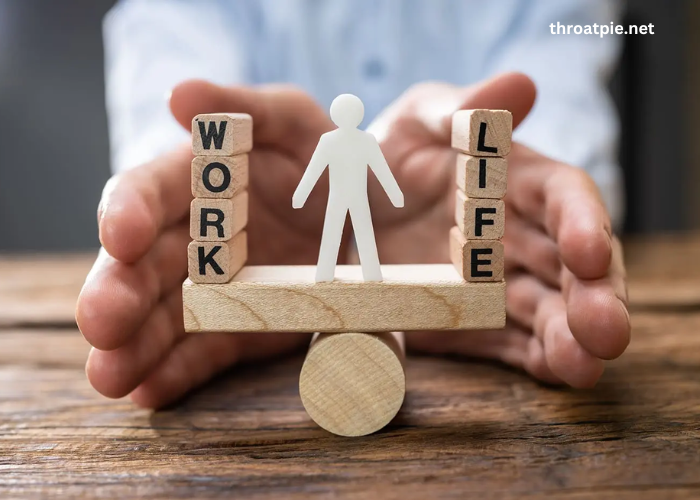In today’s fast-paced world, achieving work-life balance seems like an elusive goal. With technology enabling us to stay connected around the clock, long working hours becoming the norm, and personal responsibilities piling up, finding harmony between work and personal life can feel overwhelming. However, it is crucial for both mental and physical well-being to strike a balance. Here are practical strategies to help you maintain work-life equilibrium in a demanding world.
1. Set Clear Boundaries
One of the key elements of work-life balance is setting boundaries. It’s easy to let work spill over into your personal time when you’re constantly accessible via email or phone. Establish clear work hours and communicate these to your colleagues, managers, and family. Avoid checking emails after work hours, and designate specific spaces in your home for work to create a physical boundary between your professional and personal lives.
2. Prioritize and Delegate
In a fast-paced environment, it can feel like there’s always something to do. The key is learning to prioritize tasks effectively. Identify the most critical tasks that require immediate attention and tackle those first. Delegate tasks that others can handle, whether in the workplace or at home. This reduces your workload and prevents you from becoming overwhelmed.
3. Embrace Technology Mindfully
While technology can be a double-edged sword, it also offers tools that can help manage your work and personal life more effectively. Use productivity apps like task managers or calendars to organize your time. Set reminders for both work and personal tasks to stay on track. However, be mindful not to let technology blur the lines between work and home—turn off notifications after work hours to create time for yourself.
4. Learn to Say No
In a culture that often values overworking and multitasking, it can be hard to say no. However, learning to decline additional tasks, projects, or commitments that don’t align with your goals is vital for preserving your work-life balance. Politely but firmly saying no can help protect your time and energy for things that truly matter to you.
5. Schedule Personal Time
It’s easy to neglect personal time when work is demanding, but self-care is essential for maintaining balance. Schedule time for yourself, whether it’s for exercise, relaxation, hobbies, or spending quality time with loved ones. Treat this time as non-negotiable, just like a work meeting, and stick to it.
6. Practice Mindfulness and Stress Management
Mindfulness and stress management techniques are powerful tools in maintaining balance. Practices like meditation, deep breathing, or yoga can help reduce stress and refocus your mind. By staying present in the moment and managing stress, you can improve both your productivity and your overall sense of well-being.
7. Take Breaks Throughout the Day
Taking short breaks throughout your workday is essential for sustaining energy levels and maintaining focus. Studies have shown that breaks can increase productivity and reduce burnout. Whether it’s a short walk, a few minutes of stretching, or simply stepping away from your desk, these breaks are necessary for both physical and mental rejuvenation.
8. Leverage Flexibility
Many workplaces now offer flexible work arrangements, such as remote work or flexible hours. Take advantage of these options when available, as they can significantly reduce stress and provide you with more control over your schedule. Having the ability to manage your own time allows you to balance work demands with personal responsibilities more easily.
9. Know When to Unplug
In today’s connected world, it’s tempting to always be plugged in. However, it’s important to regularly disconnect. Whether it’s taking a weekend off from emails or setting a limit on screen time in the evening, unplugging helps you recharge and prevents burnout. Use this time to reconnect with yourself and those around you, free from the constant pressure of work.
10. Seek Support
Balancing work and personal life can be difficult, but you don’t have to do it alone. Seek support from family, friends, or even a professional mentor or therapist. Discussing challenges and sharing strategies for managing stress can provide relief and help you find solutions that work best for your situation.
Conclusion
Maintaining work-life balance in a fast-paced world requires intentional effort and thoughtful planning. By setting clear boundaries, prioritizing tasks, embracing technology mindfully, and carving out time for personal well-being, you can create a sustainable balance between work and life. Remember, achieving work-life harmony is not a one-time feat but a continuous practice that evolves as your life and career change. By taking proactive steps today, you can enjoy greater peace, productivity, and fulfillment in all areas of your life.





